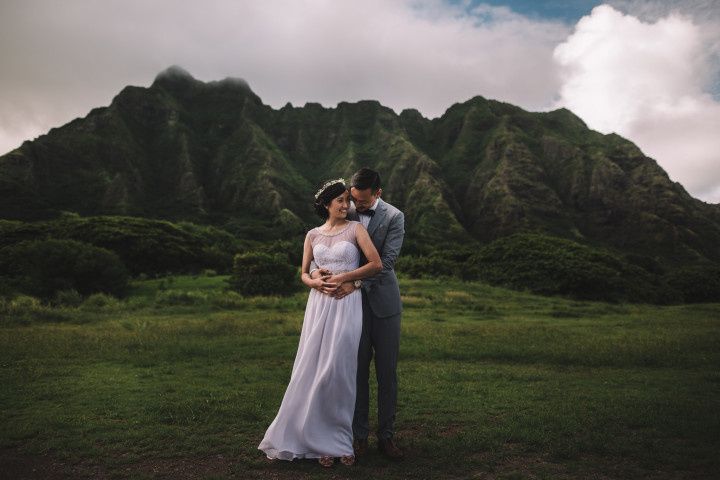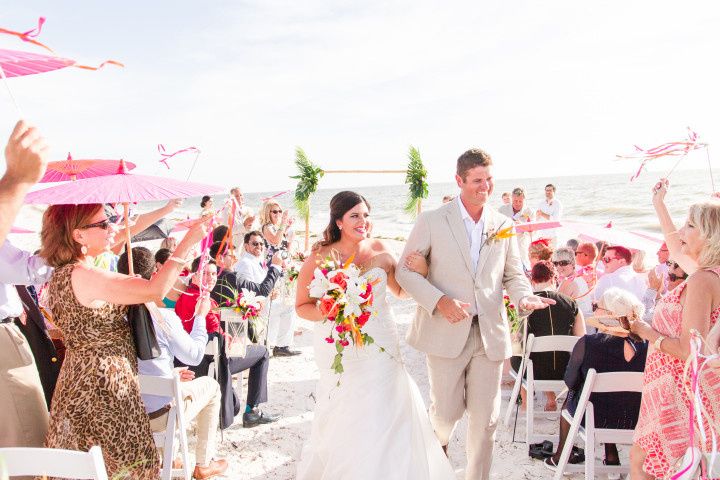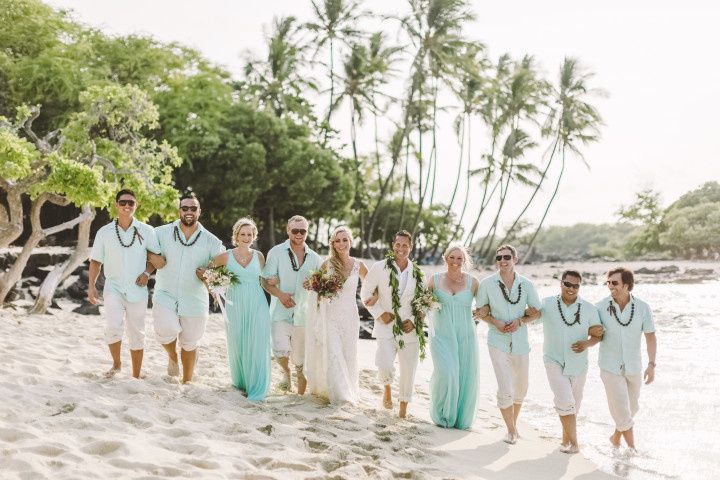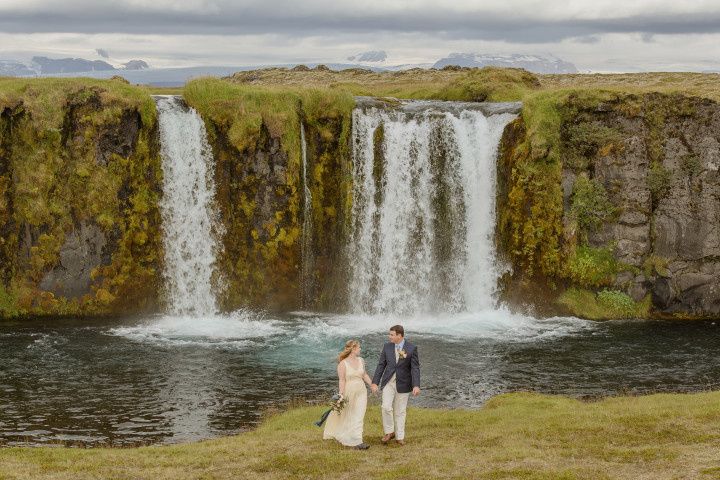5 Things to Consider for a Destination Wedding
Destination wedding planning can seem daunting, but we've covered the biggies in these five essential steps.

The decision to have a destination wedding could have taken a while to get to for some couples. For others, it’s something they always knew they wanted. But what about the things you may not have thought about right away? Important things you will need to consider throughout the planning process? That’s where we come in!
We’ve rounded up some of the top things couples should consider when having a destination wedding and how to tackle them.
Extending invitations
Deciding who to invite to a destination wedding can be a difficult feat, particularly for couples with large family and friend groups. The good news is there’s no need to limit your guest list just because you’re having a destination wedding. Plenty of couples opt to invite the same guests that they would for a traditional wedding. Many couples who limit invites consider a post-wedding reception when you return home, though it’s by no means required. Remember: this is your wedding, and it can be shared with whomever you choose.
Religious officiant vs. civil ceremony
As many couples choose to have their nuptials outside with a destination wedding, civil ceremonies are often preferred by couples to religious ceremonies. If you are interested in having a religious ceremony, many resorts can arrange for a local officiant to marry you. Or speak with your local religious leader to find out exactly what the religious requirements are for a marriage in the destination of your choice. If you don’t want a formal religious ceremony, many couples incorporate a religious reading into their ceremony. Or, skip religion altogether if it’s the right thing for you and your fiancé. Whatever you decide, remember to go with whatever feels authentic and right for you as a couple.

Giving guests advance notice
As a destination wedding is a financial investment for your guests and many use their vacation time to come to your wedding, it’s polite to give them ample notice so that they may plan and budget accordingly. They may also want to plan an extended vacation following the wedding, so be sure to inform guests of the resort and destination of choice as early as possible. Ideally, guests should receive save-the-date notices 6-8 months prior. If you’re planning a short engagement, it’s polite to at least give invitees 6-8 weeks, which is in line with when you would send out wedding invitations for a traditional wedding. So don’t worry if you’re planning your event last minute; you can still make your dream wedding happen with a little coordination!
Wedding insurance
To insure or not to insure, that is the age-old destination wedding question. You probably already know what our professional opinion is going to be. Yes, insurance is a good idea. And not just for gloom and doom runaway fiancé situations. Just like any other travel plans, flights get delayed, weather happens, and guests get sick. For the deposit that you’ll spend, you’ll have ample peace of mind knowing that your big day investment is protected from mayhem.
Honeymoon plans
One of the (many) great benefits of a destination wedding is that you likely won’t have to go far to enjoy your dream honeymoon. Still, it’s good to keep in mind that many of your guests may extend their stay after your wedding, so it’s important to consider whether you would be okay running into family and friends while you honeymoon. If you’re looking for more privacy but don’t want to lose the perks of booking with your resort, many companies will transfer resort credits to their properties in different locations.
Planning a destination wedding may seem like a lot of work, but it’s actually a lot less stress than all that’s involved in planning an at-home wedding. And of course, all the hard work is worth it for the amazing experience, memories and fantastic photos you’re sure to bring home with you!





